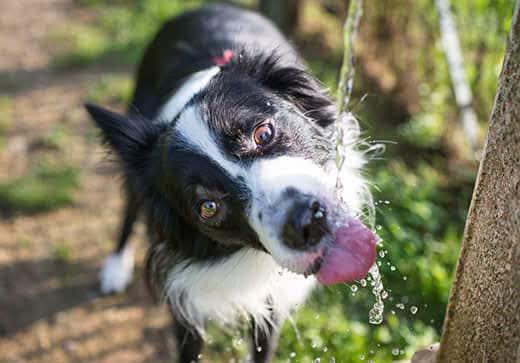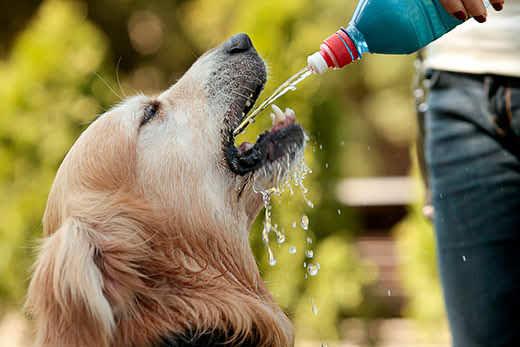
-
Find the right food for your petTake this quiz to see which food may be the best for your furry friend.Find the right food for your petTake this quiz to see which food may be the best for your furry friend.Featured products
 Small & Mini Mature Adult 7+ Dog Food
Small & Mini Mature Adult 7+ Dog FoodHill's Science Plan Small & Mini Breed Mature Adult Dog Food with Chicken is a complete pet food, specially formulated with ActivBiome+ Multi-Benefit Technology.
Tailored nutrition to support graceful ageing in small dogs. Specially made with a synergistic blend of nutrients for energy & vigor.Shop Now Perfect Digestion Large Breed Puppy Food
Perfect Digestion Large Breed Puppy FoodPrecisely balanced nutrition with Hill's ActivBiome+ prebiotic blend actively contributes to supporting digestive health and overall well-being to help your pet feel their best
Shop Now Perfect Digestion Small & Mini Adult Dog Food
Perfect Digestion Small & Mini Adult Dog FoodHill's Science Plan Perfect Digestion Small & Mini Breed Adult Dog Food with Chicken & Brown Rice supports ultimate digestive well-being & a healthy microbiome.
Shop NowFeatured products Hairball & Perfect Coat Adult Cat Food
Hairball & Perfect Coat Adult Cat FoodHill's Science Plan HAIRBALL & PERFECT COAT Adult cat food with Chicken is specially formulated to effectively help avoid hairball formation in adult cats while promoting a beautiful coat. Thanks to its mix of essential Omega-6 fatty acids, this food benefits the cat's skin and fur keeping them healthy and shiny. Our Advanced Fibre Technology helps reduce hairballs by naturally promoting their passage through the gut. This food is formulated with high-quality protein for a perfectly balanced, great-tasting recipe.
Shop Now Hypoallergenic Dry Cat Food
Hypoallergenic Dry Cat FoodHILL'S SCIENCE PLAN Hypoallergenic Adult cat food with egg & insect protein is a complete pet food for adult cat 1–6 years old. It's formulated for cats with delicate skin and stomach, with limited high quality novel protein sources & no grain.
Shop Now Kitten Food
Kitten FoodTender chicken chunks in gravy for kittens, with omega-3s for healthy eye & brain development and high-quality protein to support muscle growth. With balanced minerals to promote strong bones & teeth.
Shop Now -
Dog
- Dog Tips & Articles
-
Health Category
- Weight
- Food & Environmental Sensitivities
- Urinary
- Digestive
- Joint
- Kidney
-
Life Stage
- Puppy Nutrition
- Adult Nutrition
- Senior Nutrition
Cat- Cat Tips & Articles
-
Health Category
- Weight
- Skin & Food Sensitivities
- Urinary
- Digestive
- Kidney
-
Life Stage
- Kitten Nutrition
- Adult Nutrition
Featured articles The Right Diet For Your Pet
The Right Diet For Your PetLearn what to look for in healthy pet food & nutrition, including ingredients, quality of the manufacturer, your pet's age, and any special needs they have
Read More Pet Food Storage Tips
Pet Food Storage TipsWhere you store your cat and dog food can make a big difference in the quality and freshness once it is opened. Here are some common questions and recommendations for optimal storage for all of Hill’s dry and canned cat and dog food.
Read More Understanding Your Pet's Microbiome
Understanding Your Pet's MicrobiomeLearn what a pet's microbiome is, how it contributes to your pet's gut & overall health, and why nutrition is important in maintaining healthy microbiomes.
Read More -


Dehydration in dogs is a serious condition that should never be ignored — especially considering a dog's body is made up of 60 to 70% water, according to Veterian Key.
Dehydration occurs when a dog's body loses more water than it takes in, and there isn't enough water in the dog's blood stream. When this happens, electrolytes in the body become unbalanced, which negatively impact the ability of muscles and internal organs to function normally. Read on to learn more about how to tell if your dog is dehydrated and how to keep your dog from getting dehydrated.
How to Tell If Your Dog Is Dehydrated
 Believe it or not — there are subtle clues that your dog might be dehydrated. One of the classic ways of checking for hydration in dogs is by gently pulling up on the skin located on the nape of the dog's neck and then letting the skin go. If the skin quickly bounces back down flat, then the dog is hydrated. If the skin stayed tented up or flattens out slowly, then your dog could be dehydrated.
Believe it or not — there are subtle clues that your dog might be dehydrated. One of the classic ways of checking for hydration in dogs is by gently pulling up on the skin located on the nape of the dog's neck and then letting the skin go. If the skin quickly bounces back down flat, then the dog is hydrated. If the skin stayed tented up or flattens out slowly, then your dog could be dehydrated.
One concern with the skin tenting test is that by the time a dehydrated dog has tented skin, they are so dehydrated that internal organs may already be experiencing damage. A sign of milder dehydration you may be able to detect is checking their gums. If their gums feel dry and tacky, this commonly indicates that they are slightly dehydrated. Also, keep in mind that skin tenting may not work as well in older dogs or dogs with hormonal conditions that impact skin elasticity.
Other clinical signs of dehydration in dogs include:
- Increased heart rate
- Excessive tiredness or dull mentation
- Wobbling when getting up or walking
- Gums that appear dark red or pale
- Sunken, dull eyes
If you notice any of these signs and think your dog is sick or dehydrated, call your veterinarian immediately and prep to bring them into the vet quickly. Dehydration is a serious condition that should be treated by a professional as soon as possible.


Tasty Tips
Treatment for Dehydration in Dogs
Treatment of dehydration in dogs depends on how severely a dog is dehydrated. Mild dehydration in dogs that are drinking adequately can be remedied by offering small amounts water. If your dog is vomiting or can't hold water down, offer your dog some ice chips, and call your vet for advice. Your vet will likely want you to bring your dog in for examination.
Moderate to severe dehydration is treated by fluid therapy, either subcutaneously (under the skin) or intravenously. This is done carefully under the supervision of a vet, because if you rehydrate a dog too quickly or give them too many fluids at once, it can cause additional health problems.
 If dehydration is due to an underlying condition, then that condition needs to be treated or the dehydration will likely return. Any environmental or health condition that impacts the balance of water in a dog's body can cause dehydration. Dehydration in dogs may be caused by vomiting, diarrhoea, liver and kidney disease, fever, not eating or drinking enough and hormonal conditions like diabetes mellitus. Because there are so many possible underlying conditions, the advice of your vet is especially important.
If dehydration is due to an underlying condition, then that condition needs to be treated or the dehydration will likely return. Any environmental or health condition that impacts the balance of water in a dog's body can cause dehydration. Dehydration in dogs may be caused by vomiting, diarrhoea, liver and kidney disease, fever, not eating or drinking enough and hormonal conditions like diabetes mellitus. Because there are so many possible underlying conditions, the advice of your vet is especially important.
If your vet suspects an underlying condition, additional tests, such as blood work, urinalysis or imaging studies like X-ray or abdominal ultrasound may be recommended. These tests will help your vet determine the cause of your pup's dehydration and help them decide on the best treatment plan for your pet.
Dehydration can cause damage to internal organs, so if you notice any signs of dehydration in your dog, offer them small amounts of water and call your vet as soon as possible. Depending on the underlying cause and appropriate treatment, prognosis is usually good for recovery from dehydration.
Preventing Dog Dehydration
Fortunately, if you provide continuous access to clean water, a healthy dog will drink as much as they need to stay hydrated without any intervention on your part. Offering plenty of clean water is also important to help your dog stay cool on hot summer days as heat stroke can also lead to dehydration. When the temperature is on the warmer side, make sure to always have clean water available for your dog to drink from. So, if you decide to go to the dog park or take a walk around the neighbourhood, make sure to bring a water bottle and something for your dog to drink out of. If your dog refuses to drink water after playing in the warm sun, monitor their behaviour. If they look sluggish or withdrawn, make sure to contact your veterinarian right away as these can be signs of heat exhaustion.
While dehydration in dogs can be life-threatening, if you know what to look for, then you can catch dehydration before it becomes a big problem. Then you can enlist the help of your friendly neighbourhood vet to prevent dehydration from causing further problems for your furry friend.


Dr. Sarah Wooten graduated from UC Davis School of Veterinary Medicine in 2002. A member of the American Society of Veterinary Journalists, Dr. Wooten divides her professional time between small animal practice in Greeley, Colorado, public speaking on associate issues, leadership, and client communication, and writing. She enjoys camping with her family, skiing, SCUBA, and participating in triathlons.
Related products

Hill's Science Plan Perfect Digestion Small & Mini Breed Adult Dog Food with Chicken & Brown Rice supports ultimate digestive well-being & a healthy microbiome.

Precisely balanced nutrition with Hill's ActivBiome+ prebiotic blend actively contributes to supporting digestive health and overall well-being to help your pet feel their best

Hill's Science Plan Small & Mini Breed Mature Adult Dog Food with Chicken is a complete pet food, specially formulated with ActivBiome+ Multi-Benefit Technology.
Tailored nutrition to support graceful ageing in small dogs. Specially made with a synergistic blend of nutrients for energy & vigor.

Hill's Science Plan Large Breed Adult Dog Food with Lamb & Rice is a complete pet food, specially formulated with ActivBiome+ Multi-Benefit Technology.
This food is specifically designed to fuel the energy needs of large breed dogs during the prime of their life.
Related articles

Discover how the field of dog science is giving us more and more insights into the inner workings of our furry best friends.

Dog obesity is a significant problem - learn more about helping your dog become trimmer and healthier through improved nutrition.

Discover the causes, signs, and treatments of kidney disease in dogs and find methods of supporting your dog's kidney health. Learn more at Hill's Pet South Africa.

Learn about snake bites on dogs, including clinical symptoms to look for, what to do if you think your dog was bitten, and treatment & prevention options.

Put your dog on a diet without them knowing
Our low calorie formula helps you control your dog's weight. It's packed with high-quality protein for building lean muscles, and made with purposeful ingredients for a flavorful, nutritious meal. Clinically proven antioxidants, Vitamin C+E, help promote a healthy immune system.
Put your dog on a diet without them knowing
Our low calorie formula helps you control your dog's weight. It's packed with high-quality protein for building lean muscles, and made with purposeful ingredients for a flavorful, nutritious meal. Clinically proven antioxidants, Vitamin C+E, help promote a healthy immune system.

